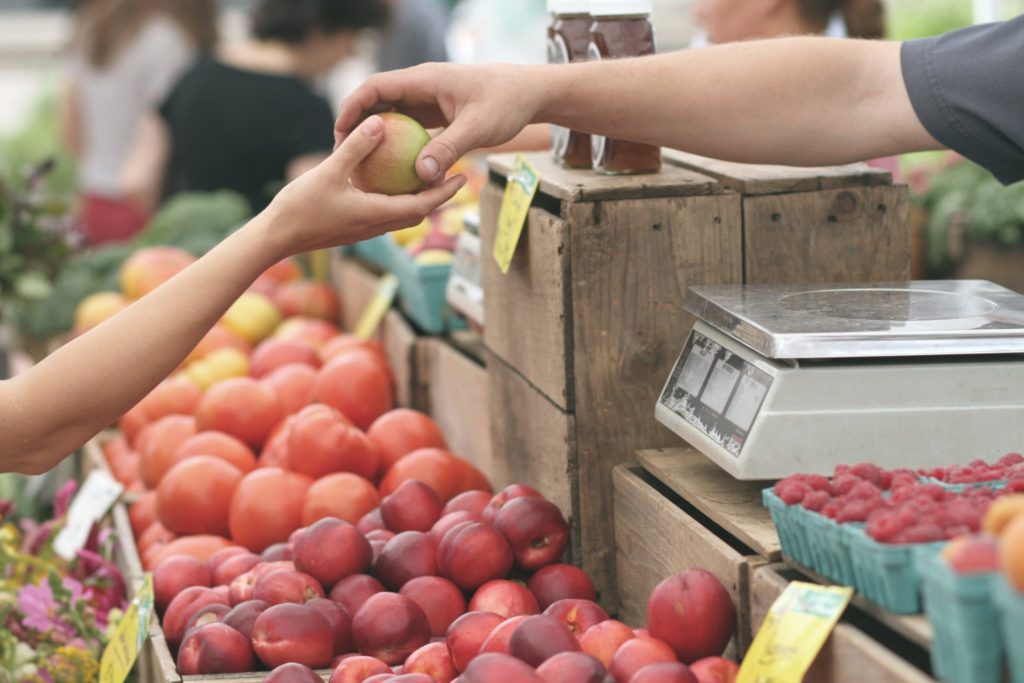
As the U.S. House of Representatives passed the coronavirus economic stimulus bill on Friday, March 27 — the largest relief bill in U.S. history — two Colorado State University faculty members had the satisfaction of knowing they did their part in protecting some of the most vulnerable people working in the nation’s food supply chain.
Dawn Thilmany and Becca Jablonski, economists in the College of Agricultural Sciences’ Department of Agricultural and Resource Economics, played an essential part in informing a policy paper released by the National Sustainable Agriculture Coalition that was circulating on Capitol Hill in the week leading up to the historic vote.
The paper, titled “Mitigating Immediate Harmful Impacts of COVID-19 on Farms and Ranches Selling Through Local and Regional Food Markets,” drew from data DARE had collected for roughly a decade, focusing on agricultural producers that operate outside of commodity markets. The analysis estimated that the effects of COVID-19 could see a loss of up to $1.32 billion in local and regional agribusiness from March to May 2020 if certain recommendations weren’t included in the bill.
“People will never be able to access local foods as easily as they can by going to the grocery store, but local producers are being entrepreneurial,” noted Thilmany. “The ways [COVID-19] will impact local producers are very different than for larger farmers. We need to keep these smaller producers viable since they are going to be the most impacted. Luckily, we had done our homework enough that we could answer questions about what that impact would be.”
Often-overlooked agribusinesses
With schools shut down and stay-at-home orders in place throughout large swaths of the country, smaller agribusinesses like farmers markets, food stands, and local farm-to-school programs were predicted to take a sizable hit as bailout bills often overlook those types of producers.
“People don’t necessarily think of these businesses as being negatively impacted by something like COVID-19, and sometimes the way these bills are rolled out, people who don’t go through commodity markets aren’t always understood to be impacted,” said Jablonski. “So this is the first time disaster or emergency relief has set aside a pot of money for these people to benefit from.”
Based on DARE’s research, the policy paper identified three types of agribusinesses that could be greatly impacted by the coronavirus pandemic: farmers markets, farm-to-school programs, and food hubs serving other institutions such as direct farm-to-restaurant sales. The resulting policy recommendations advised that the bill:
- Explicitly include local farm and farm businesses in small business support programs
- Expand incentives for small food and farm businesses to move online
- Accelerate waivers and expand flexibility for current USDA programs.
Sen. Debbie Stabenow (D-Michigan), a ranking member on the U.S. Senate’s Committee on Agriculture, Nutrition, and Forestry, saw the study and her staff got in contact for further information and clarification.
“CSU is an engaged land-grant institution,” said Thilmany. “We’ve established the right contacts in the right circles. We’ve done this great research to have good intuition and good data to turn around an answer.”
This historic bill was signed into law March 27.
Jablonski and Thilmany, along with CSU colleagues Jude Bayham, Rebecca Cleary, Rebecca Hill, Alexandra Hill, Laura Bellows, Bob Delmore and Michael Carolan, are also serving on a Colorado Department of Agriculture-focused task force looking at effects of social distancing measures on food supply chain issues. CSU’s vice president for engagement and extension, Blake Naughton, established the CSU Task Force on Colorado Food Supply to conduct rapid-response research that responds to questions raised by the Commissioner of Colorado Agriculture, the governor and the legislature. Primarily, the task force is focused on assessing the impacts of COVID-19 in several key areas: food access and security; designating food retail establishments as ‘critical businesses;’ food supply chain workforce readiness; and consumer expenditure and farm market access.